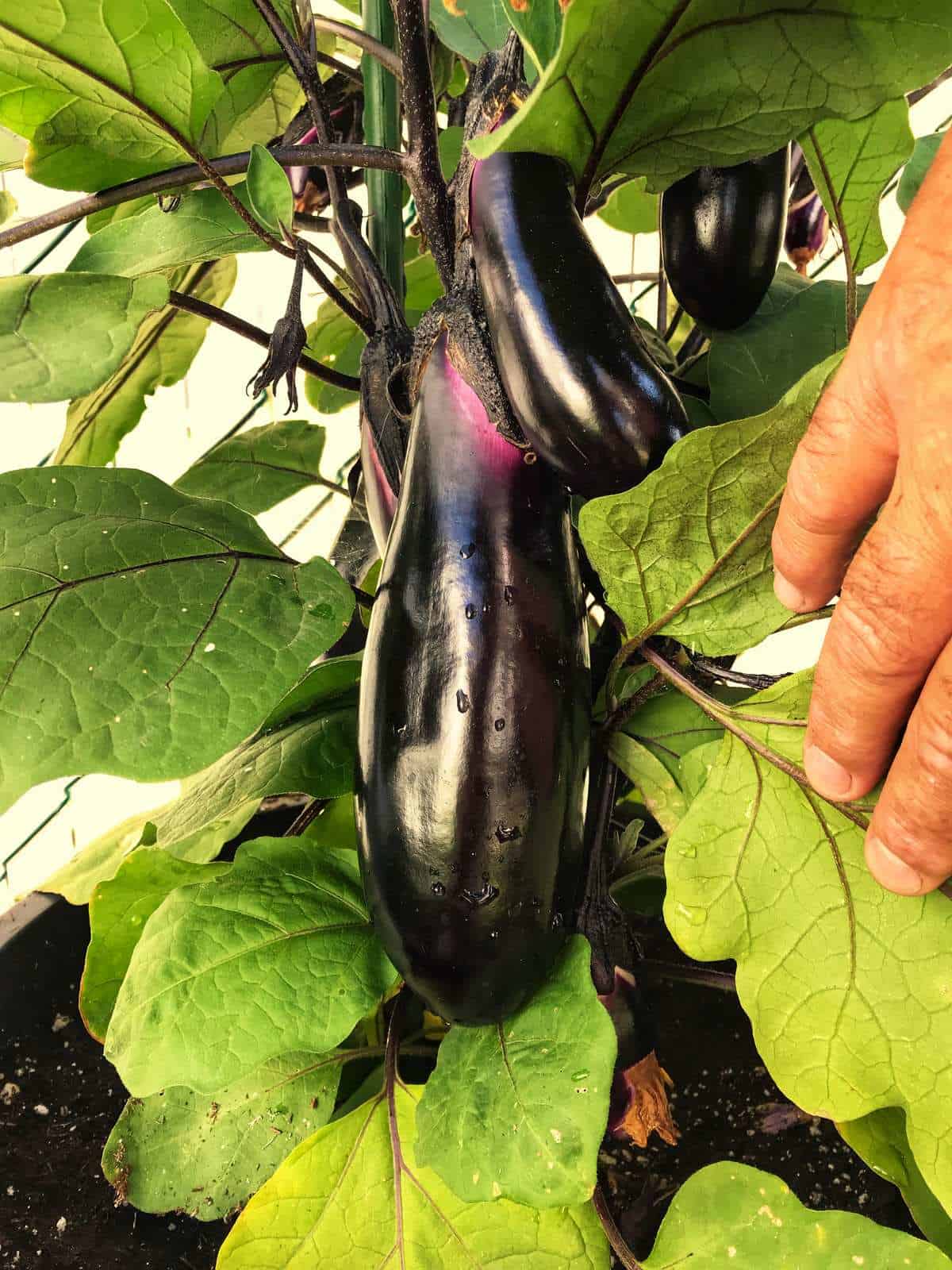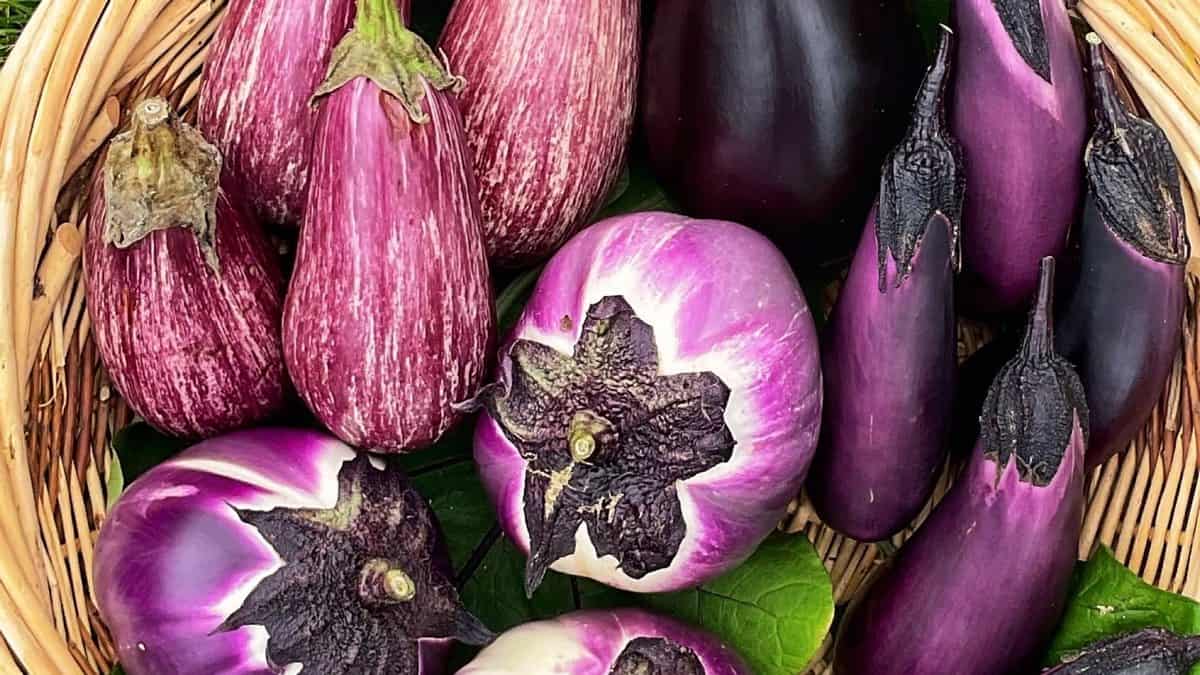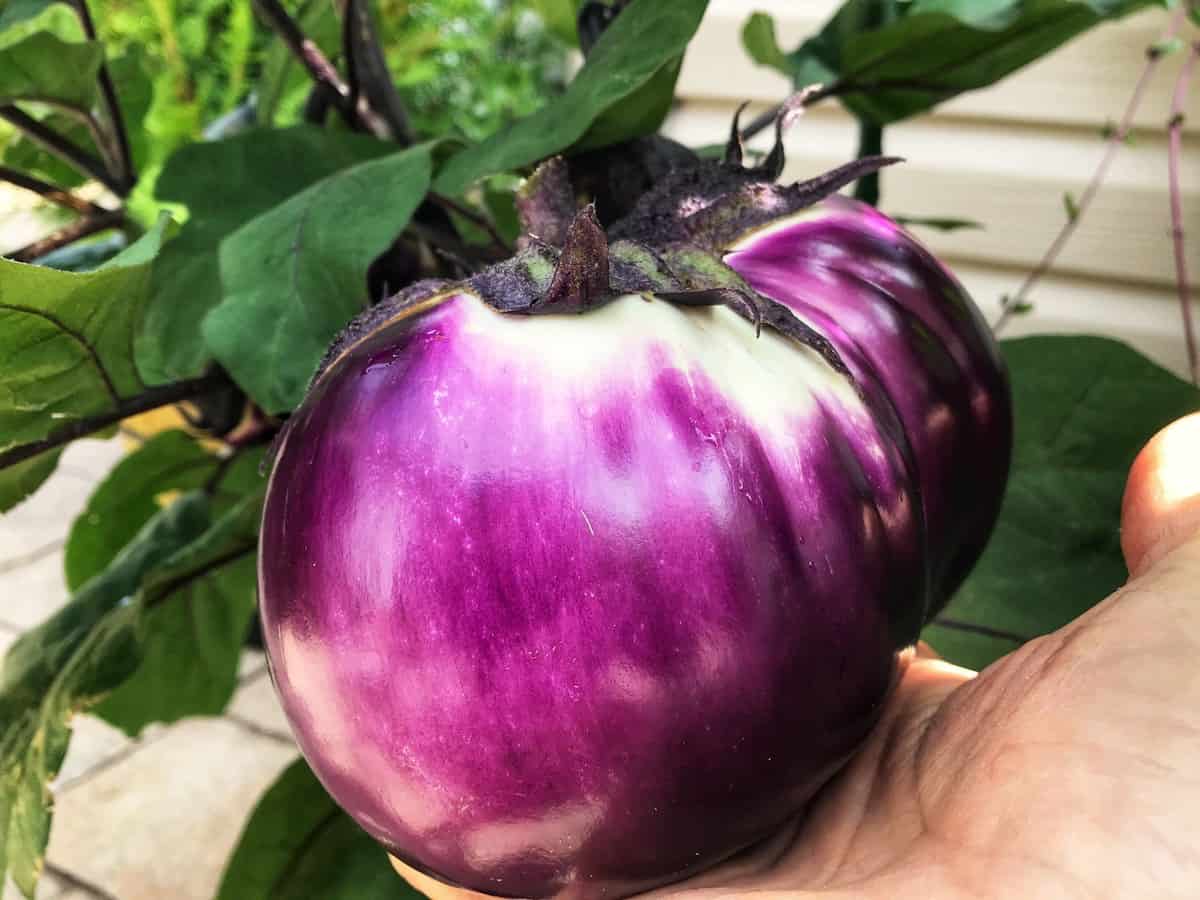Did you know that improper storage of fresh, whole eggplants causes them to spoil prematurely? This article will detail how to store eggplant, including different storage options and how long each will keep your eggplant fresh. It will also specify what to look for when choosing eggplants.

Introduction
If you have eggplants growing in your backyard garden, you know how effortless it is to harvest more than you can use at any given time.
Although zucchini has the reputation of being very productive, eggplants or aubergine can be equally bounteous.
Eggplants are essential in many Italian recipes, from caponata to eggplant parmesan to summer casserole dishes and more! And who can resist grilled eggplant when they are part of an Italian antipasto platter?
At the end of the season, you might find yourself with an eggplant harvest that you are unsure of how to store properly.
Just like storing tomatoes, providing the best condition is essential to maintain the quality of your eggplants for short and long-term storage until you can use them.
There are a few ways to store eggplants -on the counter, in the fridge, or in a temperature-controlled space to prolong their shelf life. However, storing them properly is the key to preserving their freshness and flavor.
The first step in storing a fresh eggplant is making sure you choose a ripe one.
Choosing the Right Eggplant
Whether from your backyard, the farmers’ market, or the grocery store, choose eggplants that are plump, firm and smooth-skinned with a slight give when pressed gently; the skin should be glossy.
The color of the skin can vary from white, purple, pale green and even orange!
You can choose smaller or larger-sized eggplants depending on your needs. As a general rule of thumb, it’s a good eggplant to consider storing if it feels heavy for its size.
Avoid those shriveled, wrinkled, and/or dull-looking; there should be no soft spots or damage from insects or bruising as those will spoil quickly.
Once you’ve selected your perfect eggplant, you are ready to store it. Please do not wash the eggplant before storing it, as moisture will speed up spoilage.
There are three storage options available; storing on the countertop, storing in a temperature-controlled environment and storing in the refrigerator. Keep in mind that the ideal temperature is between 50-60°F (10-15°C).
Storing Eggplants on the Countertop
Storing eggplants on the kitchen counter is popular when storing these nightshades. They will keep for two to three days depending on how ripe they are and your environment’s exact temperature and humidity.
Wrap whole eggplants in a paper towel to prevent moisture accumulation and store them out of direct sunlight at room temperature. A brown paper bag can also be used. Leave the top open.
Avoid storing them next to ethylene producers such as bananas, pears, peaches, apples, or tomatoes. The ethylene gas they emit will cause the eggplant to ripen more quickly, which may or may not be a good idea -depending on when you plan on using them.
If you plan on storing your eggplants for more than two days, storing them in the refrigerator or a temperature-controlled environment might be a better option.
Storing Eggplants in the Fridge
Storing eggplants in the fridge is a great way to preserve eggplants for up to four days.
The process of storing eggplants in the fridge is similar to storing them on the counter, except the storage time is a little longer.
Wrap in a clean paper towel to preserve their moisture and avoid bruising.
Keep eggplants in the least cold area of your fridge for enhanced freshness. If available, place them inside the crisper drawer of your refrigerator. This will help regulate the amount of humidity circulating within it.
Prolonged exposure to cold temperatures will cause your eggplants to get mushy and shriveled. If storing for more than four days, storing them in the fridge might not be an option.
Storing Eggplants in a Temperature-Controlled Environment
A temperature-controlled environment, like wine coolers or refrigerators, will keep eggplants at a humidity level that prevents moisture from evaporating and shriveling the skin.
As previously mentioned, the ideal temperature is between 50-60°F (10-15°C).
To store, use the same method as previously mentioned: wrapping whole eggplants in paper towels. This method preserves eggplants for up to seven days.
Conclusion
Storing eggplants properly helps prevent premature spoilage. The method of storing eggplants you choose is a matter of preference and how much time you need to use them.
Storing them on the counter is always a great option; storing them in the fridge will extend their shelf life by a few more days. Temperature-controlled storage can be extremely beneficial if you plan to store your eggplants for up to a week.
I hope you enjoy all of your garden produce to the fullest!
THANKS SO MUCH for following and being part of the She Loves Biscotti community where you will find Simple & Tasty Family-Friendly Recipes with an Italian Twist.
And if you are new here, welcome! You may want to sign up for my weekly e-mail newsletter. You can unsubscribe any time you want.
Ciao for now,
Maria





Leave a Reply